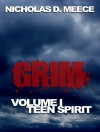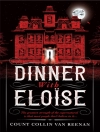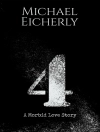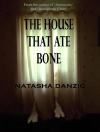In ‘The Call of Cthulhu, ‘ H. P. Lovecraft weaves a complex tapestry of cosmic horror, exploring themes of insignificance and the unknown through a series of interconnected narratives. The story unfolds through an investigative lens, as the protagonist delves into ancient texts and obscure accounts of a dark cult worshipping the primordial entity Cthulhu. Lovecraft’s unique literary style, characterized by his ornate prose and vivid imagery, immerses readers in a world where the boundaries of sanity blur amidst unfathomable terror. Published in 1928, the novella bears the hallmarks of the inexplicable and the uncanny, setting a foundation for modern horror literature by introducing the concept of ancient cosmic deities and madness. H. P. Lovecraft, an influential figure in American gothic literature, drew on his experiences with isolation and a profound fascination with the cosmos to craft his chilling narratives. Having lived through personal and professional struggles, Lovecraft’s disenchantment with humanity’s place in the universe profoundly shaped his worldview and thematic concerns. His works reflect a deep-seated fear of the unknown, arising from a blend of his classical education and a grounding in contemporary scientific discourse. Readers seeking a deep exploration of existential dread and the vast unknown will find ‘The Call of Cthulhu’ an essential addition to their literary repertoire. Lovecraft’s rich prose, eerie atmosphere, and philosophical probing into humanity’s vulnerability continue to resonate, making this novella an exemplary piece that not only establishes Lovecraft as a master of horror but also invites contemporary readers to confront their own fears in the face of the incomprehensible.
About the author
Howard Phillips Lovecraft, more widely known as H.P. Lovecraft, was born on August 20, 1890, in Providence, Rhode Island, and has left an indelible mark on the landscape of horror fiction. His writing is characterized by its infusion of cosmic horror of the unknown and the indifference of the universe to human concerns, a theme that he masterfully explored in works such as ‘The Call of Cthulhu’ (1928), which has since become an emblematic staple of Lovecraftian literature. Critically, Lovecraft’s work is noted for its unique blend of supernatural elements with existential philosophy and an almost scientific attention to detail, an amalgam that has borne the term ‘Lovecraftian horror.’ Although his oeuvre consists largely of short stories published in pulp magazines during his life, his influence spans across decades, posthumously granting him the status of one of the most significant writers of supernatural fiction in the 20th century. Lovecraft’s literary style combines archaic language with a meticulous narrative structure, which often involves the fictional mythology of the Cthulhu Mythos—an universe shared with other collaborators and successors. Despite a life marred by poverty and limited commercial success at the time, Lovecraft’s legacy continues to grow, as new generations of readers and writers are drawn to his eldritch tales of terror and the macabre.












